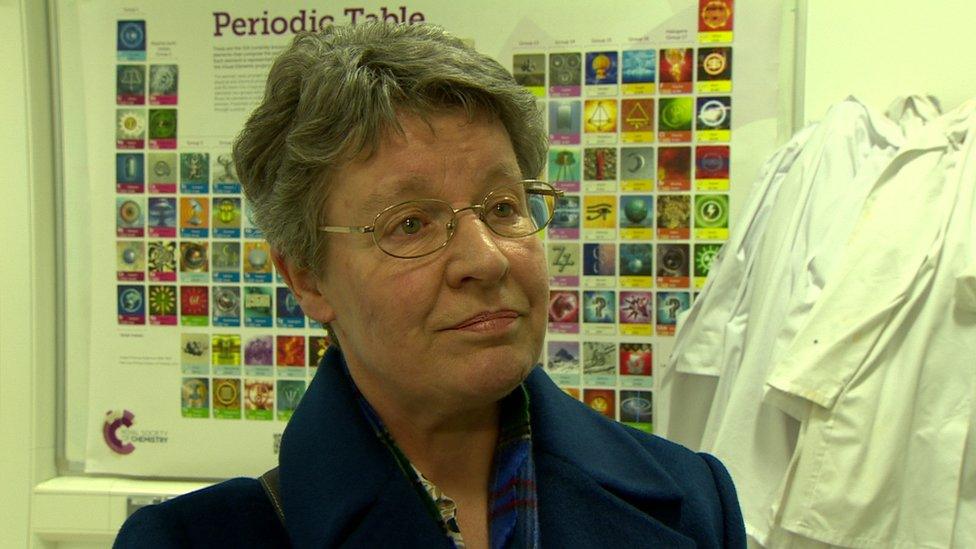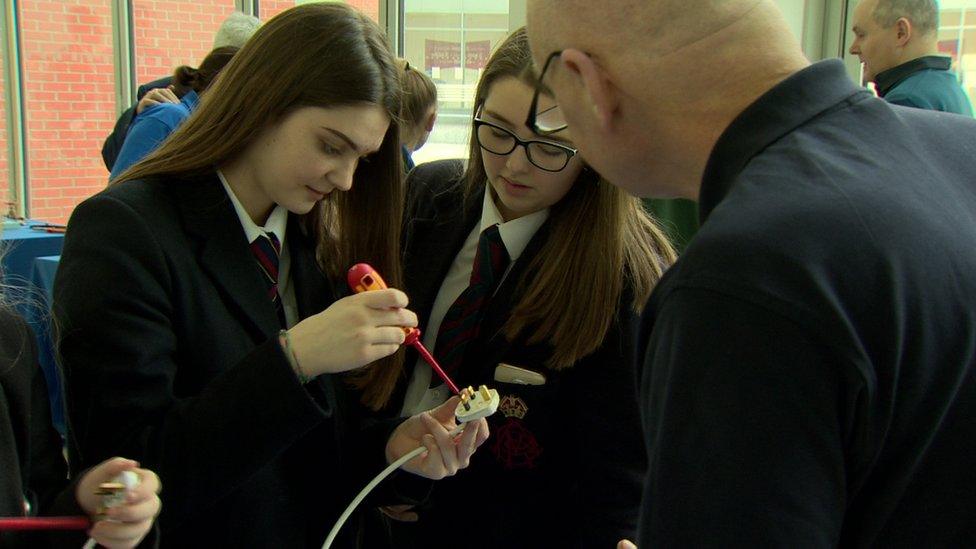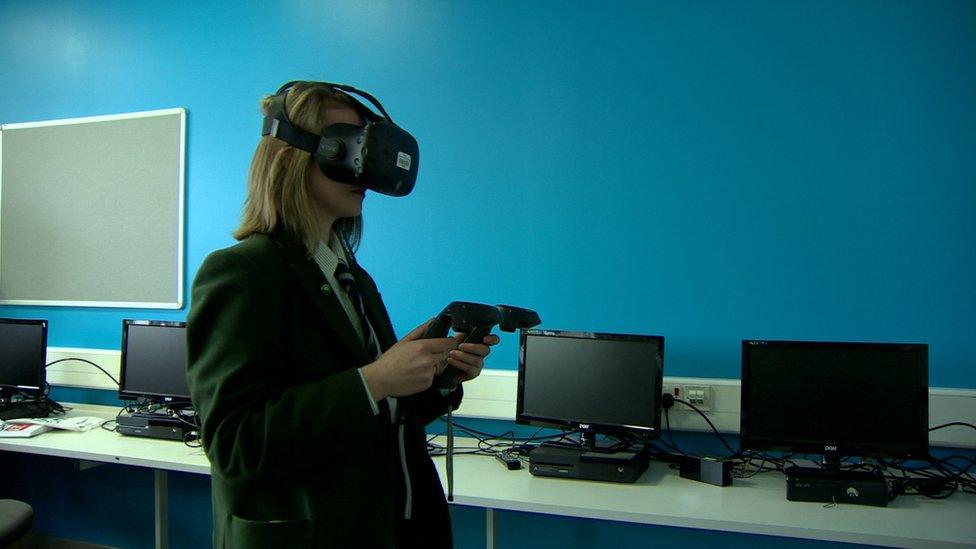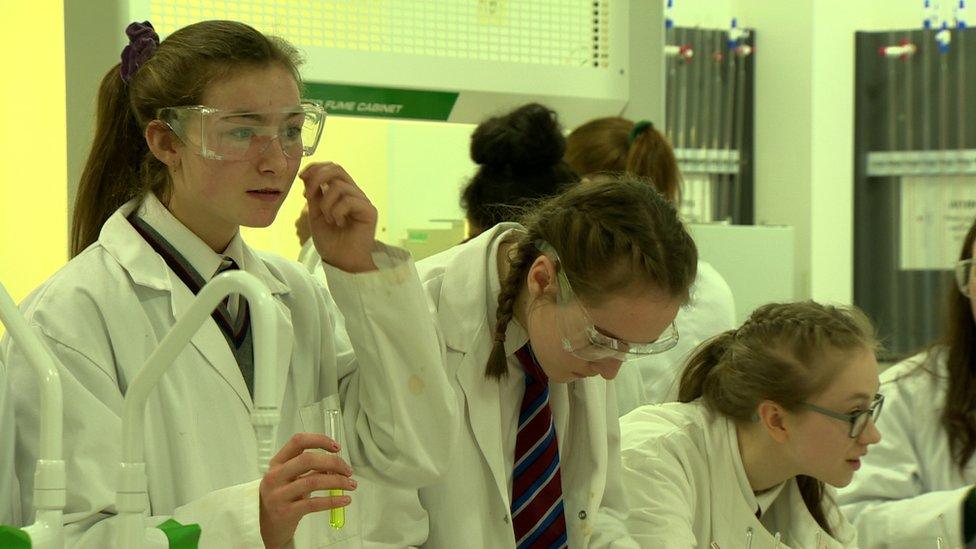Jocelyn Bell Burnell: Astrophysicist says women in science need culture change
- Published

Prof Jocelyn Bell Burnell was speaking at an event in Belfast Metropolitan College
There is still a need for a 'culture change' to enable more women to work in science, according to one of the world's leading astrophysicists.
Prof Jocelyn Bell Burnell was speaking at an event in Belfast Metropolitan College (BMC) to encourage more girls to study STEM subjects.
The Lurgan-born scientist is credited with the discovery of radio pulsars.
The breakthrough is considered one of the most significant in astronomy and physics.
Speaking to the BBC at the seminar on Friday, she said: "If you look at other countries, you'll find lots of girls doing physics, engineering and science.
"It's something to do with the kind of culture we have in the English-speaking world, about what's appropriate for each of the two sexes."
Over 100 post-primary schoolgirls attended the BMC event to take part in a number of workshops in science, technology, engineering and maths - collectively known as the STEM subjects.

Over 100 post-primary schoolgirls attended the BMC event
They sampled classes ranging from plumbing and motor mechanics, to virtual reality and app design.
There has been a gradual increase in the number of girls taking STEM subjects at GCSE and A-level in recent years, although the subjects are still much more popular among boys.
Prof Bell Burnell, who is currently a visiting professor at the University of Oxford, also told the BBC a more diverse science workforce would be better for society.
"The more diverse a research group or a business, the more robust it is, the more flexible it is and the better it succeeds," she said.
Prof Bell Burnell was overlooked for the Nobel Prize in Physics in 1974, even though the award went to two male academics who worked alongside her.
She did not put that down to sexism, but says there is still a "stereotype" that science, technology and engineering are male careers.
She also recalled her own battle to study science as a schoolgirl at Lurgan College in the late 1950s.

The girls sampled classes ranging from plumbing and motor mechanics, to virtual reality and app design
"When I started secondary school, it was assumed that the girls would do domestic science and the boys would do science, and I wasn't too happy with that," she said.
"When I told my parents, they hit the roof."
Her parents protested and the school relented, but she faced a similar struggle in the early stages of her academic career in the early 1970s.
"When I got engaged to be married, it was assumed that I would quit science and be a housewife," she said.
"It was considered shameful if a married woman had to work - it implied that her husband couldn't earn enough to keep her."
Melinda Fernando from Methodist College in Belfast was one of the schoolgirls who spent the day at BMC.
She said Prof Bell Burnell's visit gave her an important role model to follow.

There has been a gradual increase in the number of girls taking STEM subjects at GCSE and A-level in recent years
"If you look at history, there are few accounts of women ever discovering anything," she said.
"There aren't very many role models in science for women to look up to - to think 'I want to be like that, I want to do what they do'.
"It's so male dominated."
Girls from a number of schools, including Methodist College, Bloomfield Collegiate, St Genevieve's High School, Victoria College and Colaiste Feirste attended the event.
Prof Bell Burnell is also speaking at Queen's University in Belfast as part of the NI Science Festival on Sunday.